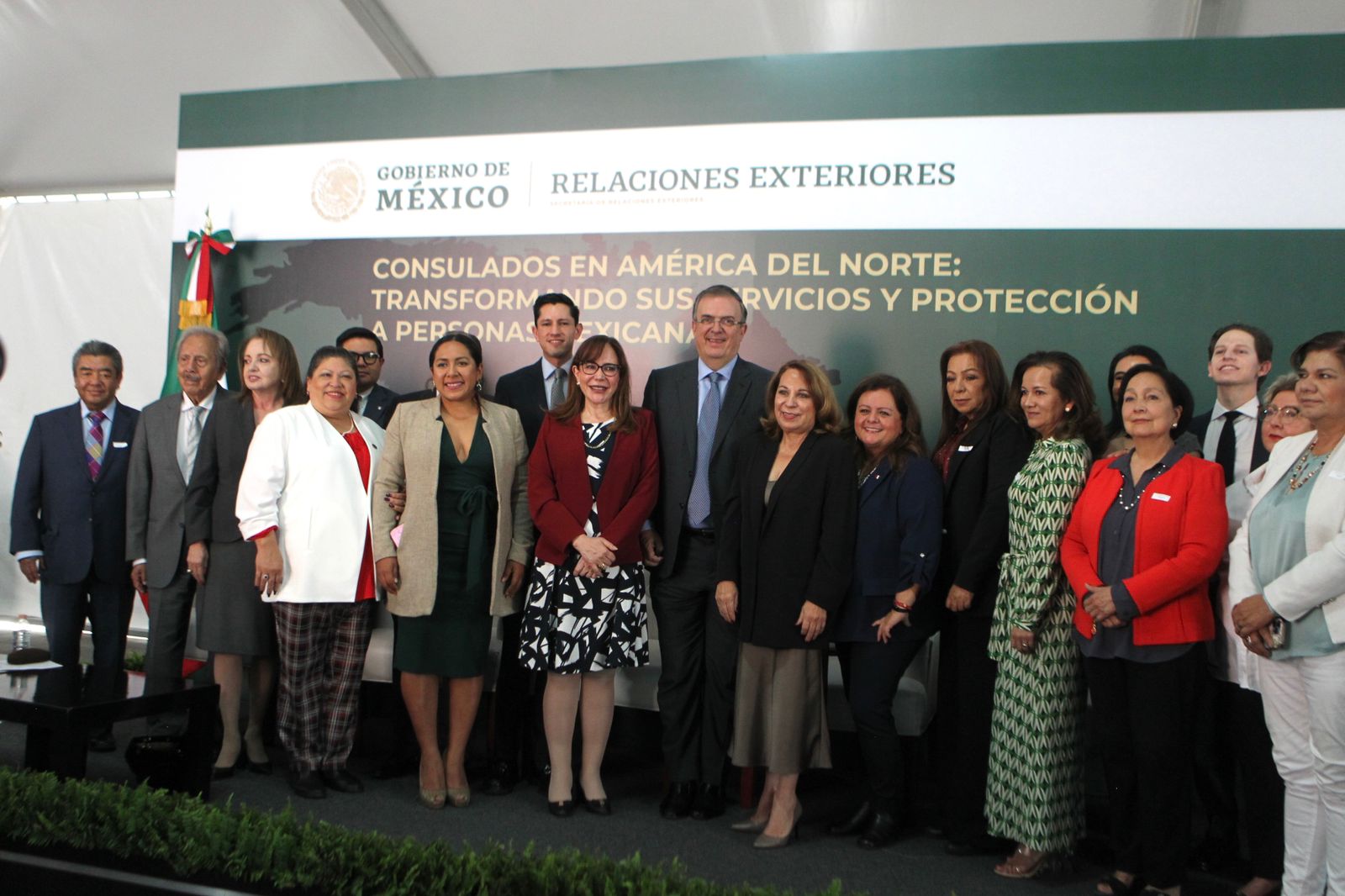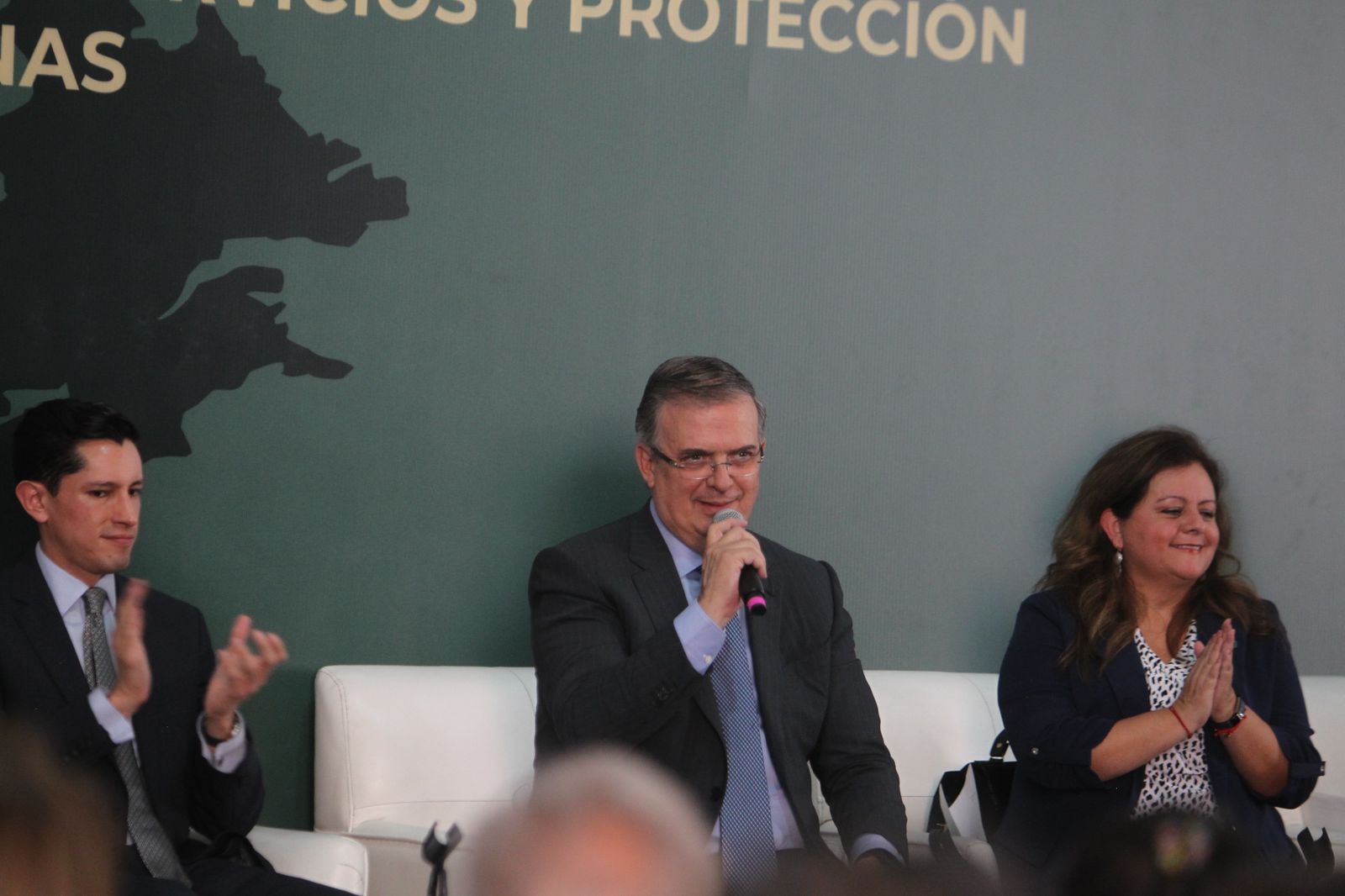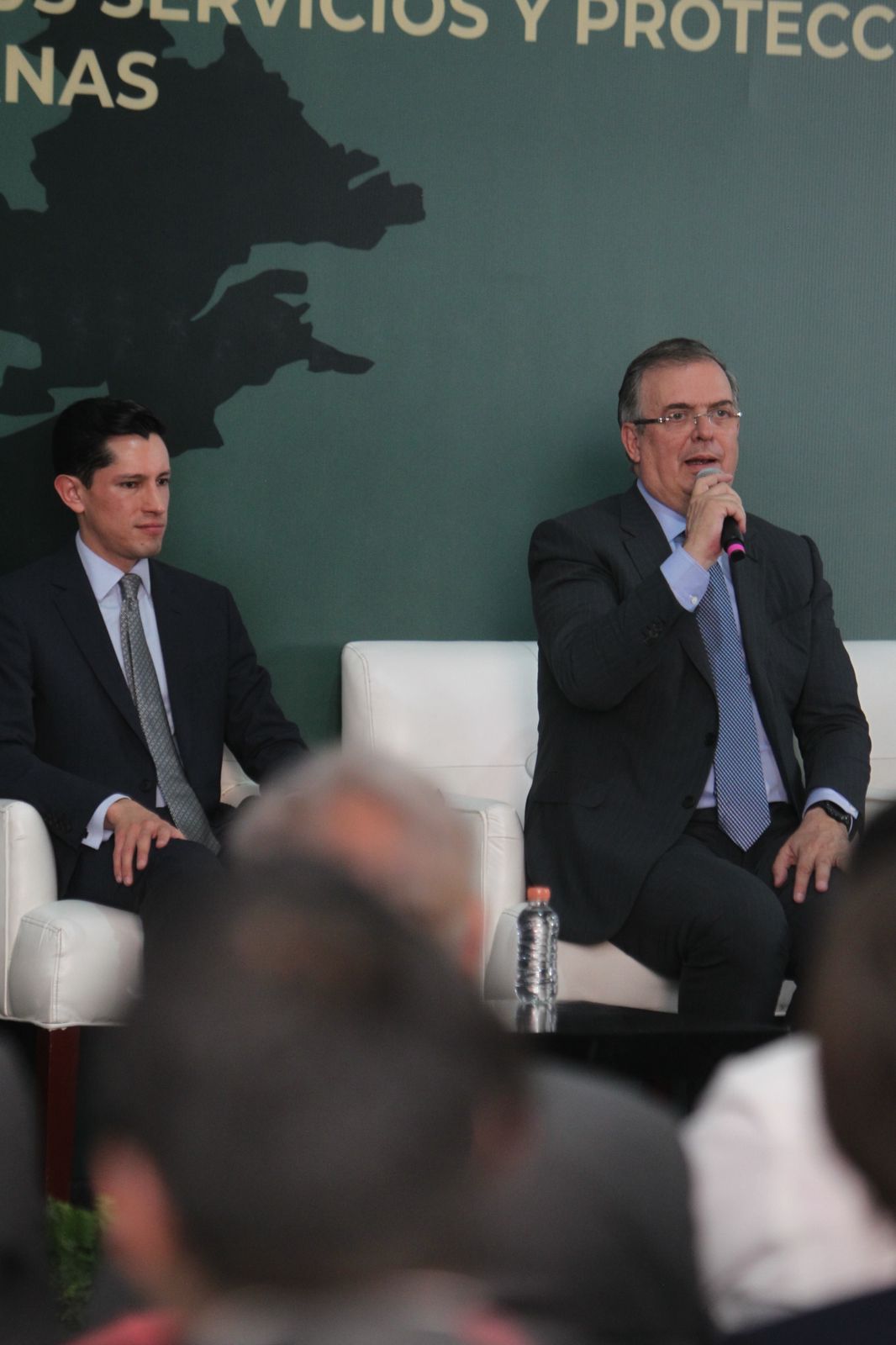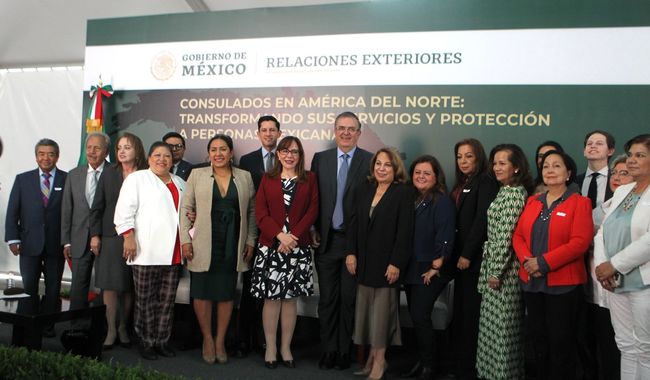- The measures include a new legal defense program for criminal cases; an expansion of the Information and Assistance Center for Mexicans abroad (CIAM); a new service for scheduling appointments at Mexican consulates; simultaneous translation for indigenous languages; new regulations for consular ID cards; a program to continually improve customer service; and salary increases for staff.
- These measures will be put in place over the coming weeks at Mexico’s consulates in North America.
Secretary Marcelo Ebrard today announced a series of actions that will be taken throughout Mexico's consular network to continue improving the quality and availability of the consular services provided for Mexicans abroad. These actions will provide more modern, efficient and inclusive consular services, in line with the instructions of President Andrés Manuel López Obrador.
In his remarks, Foreign Secretary Ebrard said, "In the United States, each of these measures has an enormous impact." He added that all of the above “has to do, not only with the daily lives of our compatriots, but also with the fact that they are part of the Mexican nation and we have to defend them and give them that support. They are part of the nation and that is why we are very pleased to announce these measures."
The Foreign Secretary reaffirmed President López Obrador's commitment to the motto "Keeping our word is the strength of Mexico and of our government." Chief Officer for North America Roberto Velasco said, "No other country in the world provides such a number of consular services outside its territory…We will continue to be a world leader for consular actions and protection."
Civil society organizations, migrant deputies, and legislators from the North American and Migration and Border Affairs Committees also attended the launch event.
In August 2022, on the instructions of President López Obrador, various areas of the Foreign Ministry held meetings with members of the Mexican communities in the U.S. to work on a joint plan. The seven new measures announced today address their needs, requests and proposals and continue improving the quality and availability of Mexico’s consular services.
1. Program for the Defense of Mexicans involved in Criminal Cases in the U.S. (PDM)
This program will complement the existing legal programs and services provided by the consular network in the U.S. by extending consular protection to individuals facing serious criminal charges, given the complexity of the U.S. system, and will seek to reduce the number of Mexicans serving sentences for crimes they did not commit and/or who have been victims of disproportionate sentences. The PDM will assist Mexicans facing criminal proceedings for a)serious crimes for which they have not admitted their guilt and where there are sufficient legal elements to presume their innocence; b) who receive disproportionate sentences due to injustices of the system; and c) who belong to vulnerable populations.
2. Center for Information and Attention for Mexicans (CIAM) in Canada
Starting in May, the CIAM will expand its services to assist Mexicans in Canada. The CIAM provides humane and reliable answers to requests for information from Mexicans living in the U.S., and now in Canada, and from their families in Mexico, 24 hours a day, seven days a week. The CIAM provides information on the legal situation of people arrested for immigration and criminal reasons, the status of minors in the custody of authorities, labor rights, immigration news, assistance for the victims of fraud or human trafficking, and missing persons, among other issues.
3. Appointment scheduling on WhatsApp
Starting on May 22, appointments can be scheduled at all Mexican consulates in the U.S. and Canada on WhatsApp, for easier access to our services and to avoid the use of third parties who post misleading advertisements about scheduling appointments. This service will be available at phone number 424 309 0009.
4. Simultaneous translation into indigenous languages
Starting on May 15, simultaneous translation into the five main indigenous languages spoken in Mexico will be available for all consular services over the phone from 9:00 a.m. to 9:00 p.m. Central Time.
5. New Consular ID Regulations
Under the new regulations, it is no longer necessary to apply for a consular ID card at the consulate that corresponds to the individual's home address. Consular ID cards can now be obtained at any consulate, regardless of the individual's address in the U.S.
6. Continuous improvement program
This program will enable consular personnel to provide better service to the public, with sensitivity, kindness and respect for human rights. The continuous improvement program will complement the training currently given by the Matías Romero Institute to consulate staff. It will begin in June and will be mandatory for all diplomatic and independent professional service providers.
7. Salary increases for Professional Service Providers
In order to adequately compensate the personnel who serve the public, especially the lower earners, Professional Service Providers in all of Mexico's representations in the U.S. and Canada will receive raises of 5.9% to 14%, depending on the cost of living in their city, inflation and local official salaries.
The actions announced today are part of the historic transformation of the Mexican consular network that has been taking place for the four years of the current administration.
Foreign Secretary Ebrard was also accompanied at the announcement of these actions by the head of the Administration and Finance Unit, Moisés Poblanno; Vanessa Calva Ruiz, Director General of Consular Protection and Strategic Planning; Jaime Vázquez Bracho, Director General of Consular Services; the founder of Mexicanas in Dallas, Yami Furlong; and Aaron Ortiz, lawyer and member of the Collective of Mexican Migrant Federations and Organizations.



